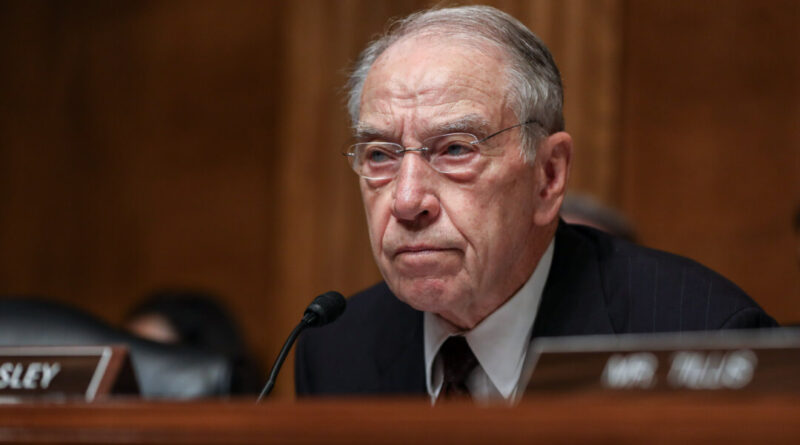Senate Judiciary Chair Proposes Legislation to Eliminate Nationwide Injunctions
The proposed legislation aims to restrict injunctive relief to parties directly involved in a court case.
On March 31, Senate Judiciary Chair Chuck Grassley (R-Iowa) put forth a bill intended to prevent courts from granting nationwide injunctions.
Referred to as the Judicial Relief Clarification Act of 2025, this legislation emerges in response to increasing scrutiny over the application of nationwide injunctions and their growing influence in obstructing elements of President Donald Trump’s agenda.
The proposed law seeks to amend two existing statutes—the Administrative Procedure Act and the Declaratory Judgment Act—to restrict the extent of relief that courts can provide under these laws.
The use of nationwide injunctions has sparked significant debate, including discussions about the constitutional validity of such practices under Article III.
This Article assigns judicial authority to the courts and generally empowers them to address “cases” and “controversies.”
“Article III of the Constitution assigns the responsibility of resolving ‘cases’ and ‘controversies’ to the judicial branch, rather than creating policy,” he stated.
“The clear solution is to restrict district courts to addressing only the cases involving the parties present before them.”
Most of these orders have been issued by judges appointed by a president from the opposition party of the current administration.
The study identified “judge shopping” as a driving force behind this trend, where plaintiffs strategically select judges perceived to be more favorable to their litigation.
During the terms of Presidents George W. Bush and Barack Obama, there were six and twelve universal injunctions, respectively.
In contrast, Trump’s first term saw that number soar to 64, with 59 of those originating from judges appointed by a president from the opposing party.
Trump has recently criticized these injunctions and has called upon the Supreme Court for intervention.
Judges have stood by the broad application of these injunctions, claiming they are critical in preventing alleged injuries stemming from executive actions.
“The rationale for deeming executive orders unconstitutional—mainly that they breach the separation of powers—is valid across jurisdictions nationwide,” U.S. District Judge Brendan Hurson stated in February while blocking Trump’s order regarding “gender-affirming care.”
“The need for a nationwide injunction becomes evident as hospitals across the country risk losing access to all federal funding should they persist in delivering gender-affirming medical services.”
When issuing a preliminary injunction against Trump’s birthright citizenship order, U.S. District Judge John Coughenour remarked in February that a geographically limited injunction would be “ineffective,” as states that are plaintiffs would be liable for the costs of children of undocumented immigrants traveling from other states.
“The prevalence of universal injunctions has become an epidemic since the current administration took office,” Harris stated.
She emphasized that “only [the Supreme Court’s] intervention can stop universal injunctions from becoming universally accepted.”
The future ruling of the Supreme Court and the challenges that Grassley’s proposal may face in the judiciary remain uncertain.
While addressing a gathering at Northwestern University’s law school in 2022, Justice Elena Kagan stated, “It simply cannot be correct that one district judge can halt a nationwide policy and keep it in abeyance for the duration of the lengthy judicial process.”
In contrast, Justice Sonia Sotomayor supported a nationwide injunction against Trump’s travel ban.
“The District Court did not misuse its discretion by granting nationwide relief,” she affirmed, while acknowledging the “unique circumstances” involved in that case.
Professor Doug Rendleman from Washington and Lee University Law School used Sotomayor’s opinion to advocate for the use of nationwide injunctions.
“A nationwide government injunction may represent the sole means to provide complete relief to plaintiffs, protect their rights, and avoid illegal or unconstitutional governmental policies that adversely affect thousands of individuals.”




